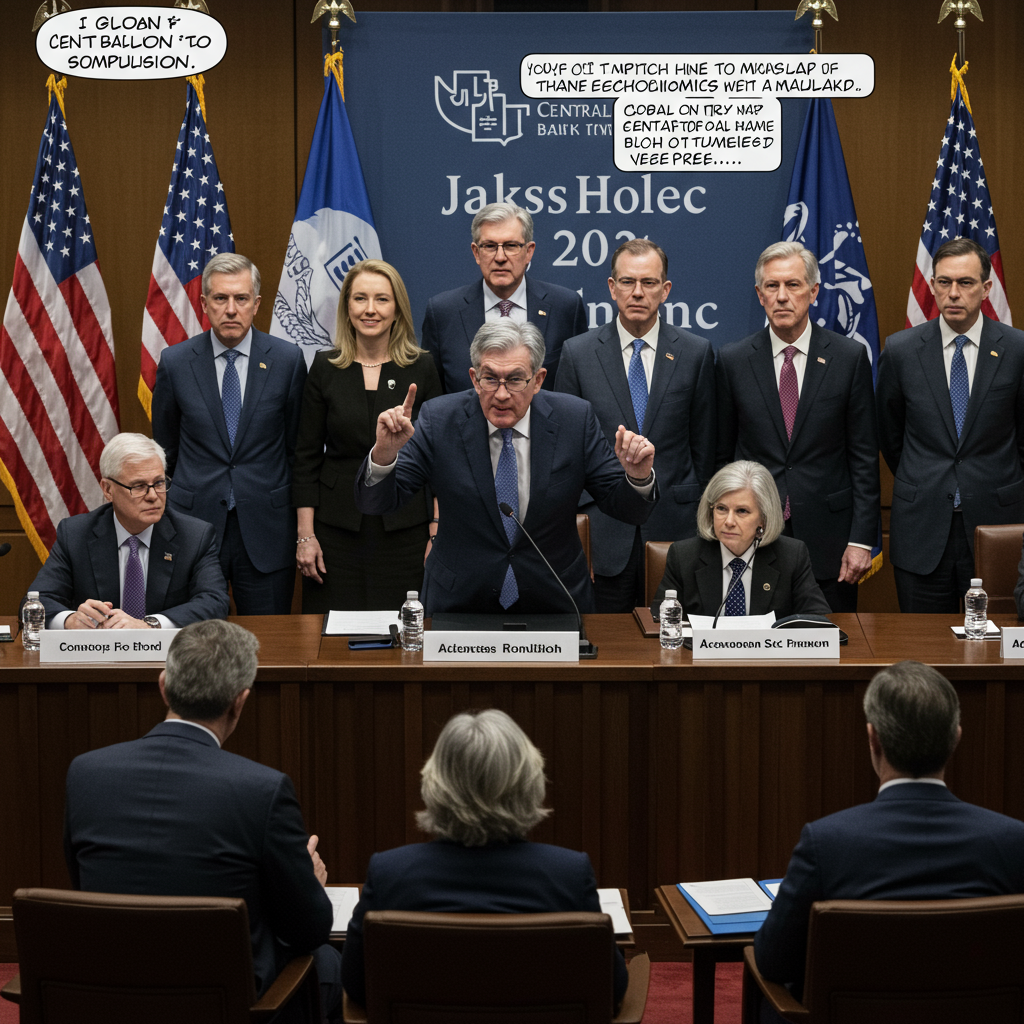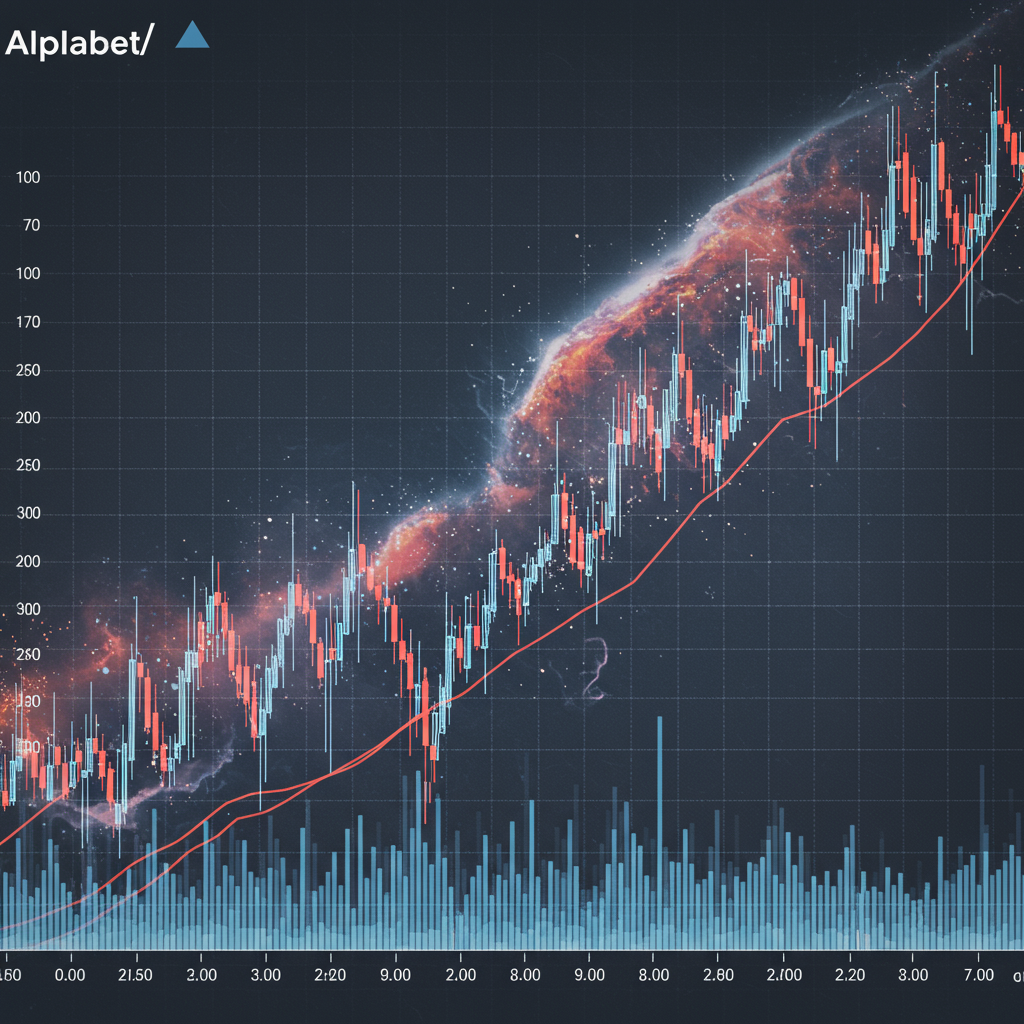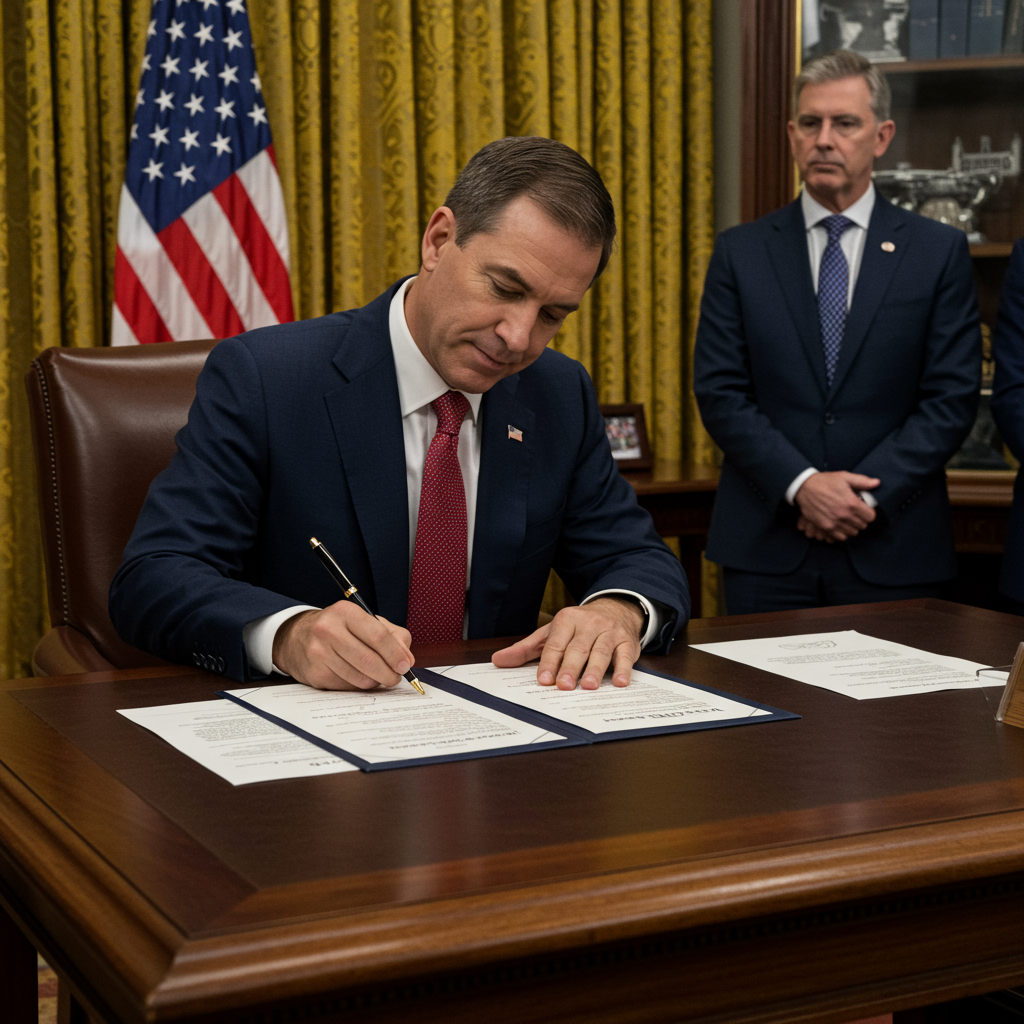In a pivotal moment for global finance, central bankers converged in Jackson Hole, Wyoming. This gathering, typically a forum for economic discourse, became a strong defense of Federal Reserve autonomy. As the world watched, prominent financial leaders united to support Fed Chair Jerome Powell. This collective stand came amidst relentless political pressure. It highlighted the critical importance of an independent central bank in maintaining economic stability.
The Jackson Hole Gathering: A Statement of Unity
The annual Federal Reserve conference at Jackson Hole, Wyoming, drew global economic leaders. This elite gathering, known for its scenic mountain views and groundbreaking research, shifted focus. Attendees were prepared to do more than simply exchange papers. Their primary objective was clear: to publicly support Jerome Powell. The Fed Chair faced unprecedented scrutiny and direct attacks. This show of solidarity underscored a shared commitment to central bank independence.
The atmosphere was charged with purpose. Central bankers from around the globe arrived with a singular message. They sought to reinforce the Fed’s crucial role. Their presence alone sent a powerful signal. It asserted the necessity of keeping monetary policy free from political interference. This unity aimed to safeguard the integrity of the institution.
Unprecedented Pressure on the Federal Reserve
Jerome Powell faced significant challenges in his role. President Donald Trump consistently criticized the Federal Reserve’s policies. These attacks often targeted the Fed’s refusal to cut interest rates. Such public demands for specific monetary actions are highly unusual. They directly challenge the Fed’s independent mandate. President Trump also indicated intentions to replace Powell. His term as chair was set to expire the following year. Trump sought a more “compliant” leader.
The pressure escalated further with calls for resignations. The administration demanded Fed Governor Lisa Cook step down. Accusations of mortgage fraud were leveled against her. This move amplified concerns about political overreach. Many viewed it as an attempt to undermine the Fed’s leadership. These actions create uncertainty for financial markets. They also risk eroding public trust in economic institutions.
Historical Context: The Bedrock of Central Bank Autonomy
The concept of central bank independence is a cornerstone of modern economics. It is designed to insulate monetary policy from short-term political cycles. Historically, governments have sometimes used central banks to finance their spending. This can lead to excessive money printing and rampant inflation. An independent central bank, however, can make difficult but necessary decisions. These decisions might be unpopular politically. Yet, they serve the long-term economic health of the nation.
For decades, the Federal Reserve has operated with a degree of autonomy. This allows it to set interest rates and manage the money supply. Its decisions are based on economic data, not political expediency. This independence has been crucial for managing crises. It also helps in achieving stable prices and maximum employment. Any perceived threat to this autonomy sends ripples through global markets. Investors value predictability and stability.
Economic Implications of Political Interference
Interference in central bank operations carries significant economic risks. If political leaders dictate interest rates, the economy could suffer. Such actions might lead to higher inflation rates. They could also spark economic instability. Markets respond negatively to uncertainty. When monetary policy becomes politicized, investor confidence wanes. This can deter investment and slow economic growth.
Moreover, a loss of independence could undermine the Fed’s credibility. Its ability to guide the economy effectively relies on trust. If the public and markets believe decisions are politically motivated, that trust erodes. This makes it harder for the Fed to implement effective policies. The long-term consequences could be severe, impacting every citizen.
Global Repercussions: Why International Peers Care
The Federal Reserve is not just America’s central bank. Its decisions have a profound impact on the global economy. Changes in U.S. interest rates affect exchange rates worldwide. They influence capital flows and commodity prices. Therefore, the stability and independence of the Fed are global concerns. Other central bankers keenly observe the situation.
Their support for Powell is not merely symbolic. It reflects a deep understanding of interconnected global financial systems. If the U.S. central bank loses its autonomy, it sets a dangerous precedent. It could encourage other governments to exert similar pressures. This could destabilize global financial markets. It might also lead to a race to the bottom in monetary policy. Maintaining the Fed’s independence helps preserve global economic order. It ensures a level playing field for international trade and investment.
The Future of Fed Leadership and Policy
The discussions at Jackson Hole extended beyond immediate concerns. Participants also pondered the future of Fed leadership. The question of Jerome Powell’s potential replacement weighed heavily. A compliant Fed Chair could dramatically alter monetary policy. This would have far-reaching implications for inflation and economic growth. The transition of leadership is always important. However, this particular transition carries unique political baggage.
The Fed’s dual mandate remains critical. It aims for maximum employment and price stability. Future policy decisions will continue to target these goals. However, the path to achieving them could become more challenging. This is especially true if political interference persists. Open dialogue and clear communication from the Fed will be essential. They are vital for maintaining market confidence during uncertain times.
The Role of Key Figures: Powell, Trump, and Cook
The dynamic between Jerome Powell and Donald Trump defined this period. Powell consistently prioritized the Fed’s independence. He emphasized data-driven decisions. Trump, conversely, sought immediate economic boosts. His approach often disregarded traditional central bank independence. This fundamental disagreement created public tension.
Fed Governor Lisa Cook also became a focal point. Accusations against her added another layer of complexity. They intensified the debate over political influence. These events highlighted the personal toll of public service. They also showcased the vulnerability of key economic institutions. The actions of these individuals shaped the narrative around central bank autonomy. Their roles remain central to understanding this contentious period.
Frequently Asked Questions
What is the Jackson Hole conference and why is it important for the Federal Reserve?
The Jackson Hole Economic Symposium is an annual conference hosted by the Federal Reserve Bank of Kansas City. It brings together central bankers, finance ministers, academics, and financial market participants from around the world. Its importance stems from its role as a forum for discussing pressing economic issues and shaping global monetary policy. In this context, it also served as a platform for global central bankers to publicly affirm support for Federal Reserve independence, particularly concerning Jerome Powell’s leadership amidst political pressure.
How does political pressure, like that described, typically impact central bank decision-making or public trust?
Political pressure on a central bank can significantly erode its decision-making autonomy and public trust. When monetary policy decisions, such as interest rate adjustments, appear influenced by short-term political goals rather than economic data, the central bank’s credibility diminishes. This can lead to market instability, as investors lose confidence in predictable policy-making. Moreover, it undermines the central bank’s ability to effectively manage inflation or promote employment, ultimately harming the broader economy.
Why do global central bankers prioritize the Federal Reserve’s independence?
Global central bankers prioritize the Federal Reserve’s independence because the U.S. economy and its monetary policy have profound worldwide implications. The Fed’s decisions on interest rates, for instance, impact global capital flows, currency valuations, and commodity prices. If the Fed’s independence is compromised, it sets a dangerous precedent that could encourage other governments to exert similar influence over their own central banks, leading to global financial instability. Upholding the Fed’s autonomy is seen as crucial for maintaining a stable and predictable international financial system.
Conclusion
The Jackson Hole conference served as more than just an academic gathering. It became a powerful declaration of support for the Federal Reserve’s independence. Global central bankers rallied around Jerome Powell. Their collective message was clear: central bank autonomy is non-negotiable. This principle is vital for economic stability. Political interference, while common, poses a severe risk. It threatens the credibility of institutions and the health of markets. As discussions about monetary policy continue, the need for independent decision-making remains paramount. This event underscores a fundamental truth: a stable global economy relies on strong, autonomous central banks.




